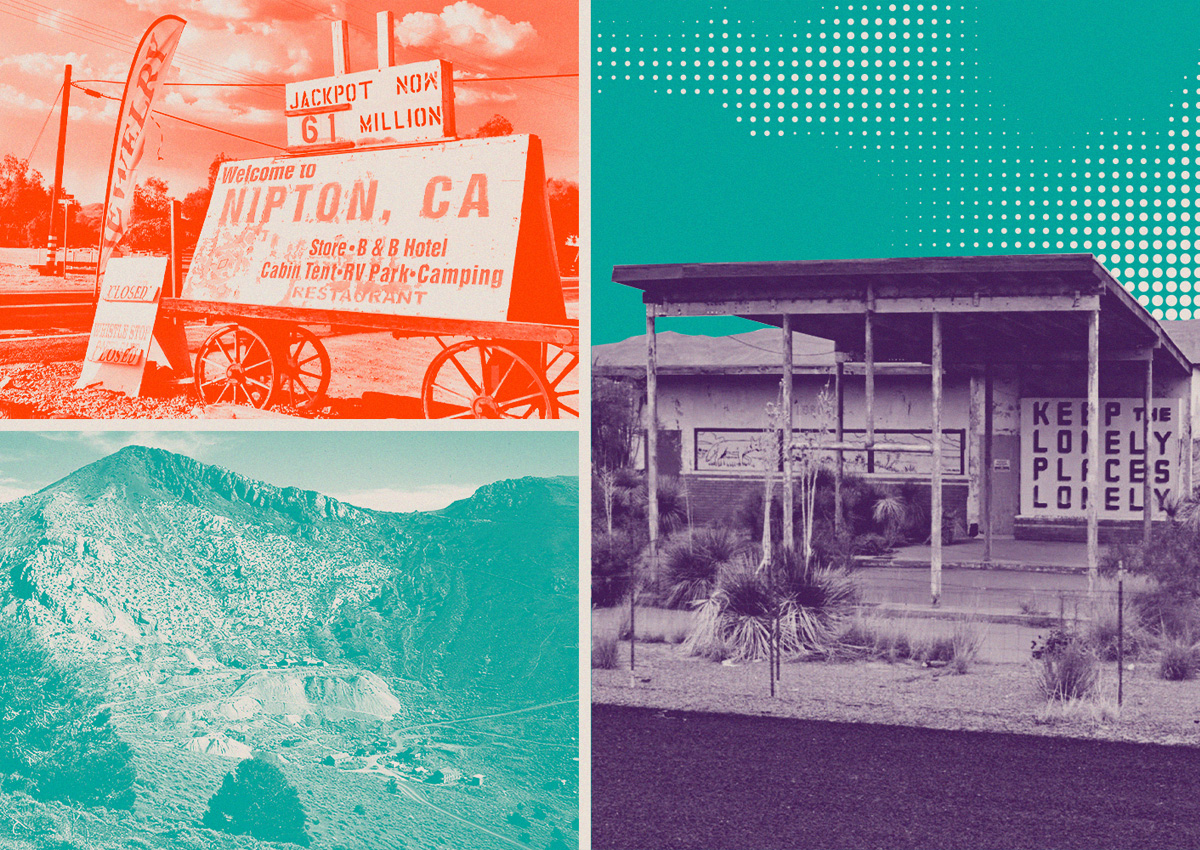Five Old West Towns Have Become Real Estate Opportunities

There’s a new sheriff in town in some Old West ghost towns: real estate brokers. And they’re looking to wrangle buyers.
There are more than a few reasons somebody might want to own an entire town, even ones without people or infrastructure. Some buyers might be drawn to the romanticism of owning a piece of history, while others are merely seeking to expand their investment portfolio and then there are the more practical types who wish to develop the land for their own use.
What the towns themselves all have in common, of course, is that they are abandoned. And depending on a multitude of factors, they can fetch a range of prices, with some going for millions of dollars.
There may not be a site like Zillow dedicated to listing ghost towns for sale, but if you look around you’ll see they come to market more than you might expect.
Here are five such examples:
Nipton, California
The adult circus Spiegelworld, led by Australian founder Ross Mollison, bought the 80-acre town of Nipton for $2.5 million with the vision of building a “circus village.”
Mollison’s Spiegelworld is best known for its “Absinthe” show that runs out of a tent at Caesars Palace in Las Vegas. It also runs “Atomic Saloon” and “Opium” in Las Vegas, and the Hook in Atlanta. Its shows have been described as “riotous,” “raunchy” and “rowdy.”
Before Mollison and his acrobats came along, Nipton had been owned by a California couple for decades. Jerry Freeman surprised his wife, Roxanne Lang, by buying the town for $200,000 in the early 1980s. After Freeman died in 2016, Lang set out to sell the property, first striking a deal with the Phoenix-based cannabis company American Green for $5 million in 2017.
Cerro Gordo, California
Cerro Gordo, an abandoned mining town 200 miles from L.A., sold to a group of eight Los Angeles-based investors in 2018 for between $1 million and $1.5 million, about a 40 percent bump from its $925,000 asking price.
The buyers are Brent Underwood, a hospitality entrepreneur and best-selling author, and Jon Bier, who runs a boutique public relations firm. Underwood declined to comment on the exact price.
At the time of the sale, the 360-acre town featured 22 structures totaling 24,000 square feet, and included a historic hotel, bunkhouse, saloon, chapel and museum. The town, once known to produce most of L.A.’s silver and lead, epitomized the Wild Wild West. At one time, there was a murder a week there.
Underwood has added to the colorful history of the town, having gotten stranded there in 2021, according to the Travel Channel. He said at the time his goal is to renovate the structures in the town and continue to live there.
Lobo, Texas
Alexander Bardoff, who bought Lobo with a group of friends for $20,000 in 2001, announced recently he’s looking for someone to buy the ghost town for $100,000, provided the buyer appreciates its history, the Wall Street Journal reported.
Prospective buyers presented a wide range of ideas for Lobo’s future, including a kangaroo farm, a nudist colony and an escape-room-style attraction where people escape from the town, not just a room.
Lobo’s history dates back to the mid-19th century, when it served as a stopover on the mail route from San Antonio to San Diego. Over time, the town grew, but after its last resident departed in 1991, Lobo remained empty until Bardorff and his friends transformed it into an artistic hub, hosting art installations, film festivals, and musical performances.
The town is composed of 10 acres and has an empty swimming pool as well as a motel, grocery store and post office, all of which are defunct, as well as vacant houses.
Bardoff says he’s not willing to sell the town to just anyone.
“Do you respect what I call the soul of Lobo?” Bardorff told the WSJ. “You can have a campground anywhere.”
Cerritos, California
Some purchasers are as mysterious as the ghost town itself. To wit: A secretive company called Ecology Mountain Holdings bought Cerritos, a California ghost town, from Eagle Mountain Acquisition LLC, an affiliate of Kaiser Steel, earlier this year for $22.5 million, SFGate reported.
The only publicly available information about the buying entity is its name; its Cerritos, California address; and that it bought the ghost town, Eagle Mountain, California.
Kaiser Steel was one of many companies owned and led by Henry J. Kaiser, a 20th century industrialist who had shipbuilding, health care, automobile, aluminum, real estate and media enterprises. His most visible legacy remaining today is the health care giant Kaiser Permanente. Kaiser Steel closed its doors in 1983, and so did the Eagle Mountain mine. The prosperity of blowing iron ore out of the hillside had withered.
What Ecology Mountain Holdings has in store for the town, which once sported a post office, a 350-seat rec center and a 100-student high school, remain unknown.
Pearce, Arizona
OK, less a town than a building, owner Patricia Burris listed for $1.1 million her 127-year-old ghost town general store known as the Arizona Ghost Town Museum after converting it to a one-bedroom home, Insider reported.
Burris and her husband Michael, a historian, bought the general store at 905 South Ghost Town Trail in 1996. The 3,900-square-foot building, originally built in 1895, has just one bedroom and two-and-a-half bathrooms, according to Realtor.com.
It was his dream to restore the property, and after he passed away Burris completed the renovation in 2019, according to the outlet. Burris’ finished Ghost Town Museum comes with working vintage appliances from the era, a working blacksmith shop and antique horse carriages in the garage.
It’s listed on the National Register of Historic Places.


